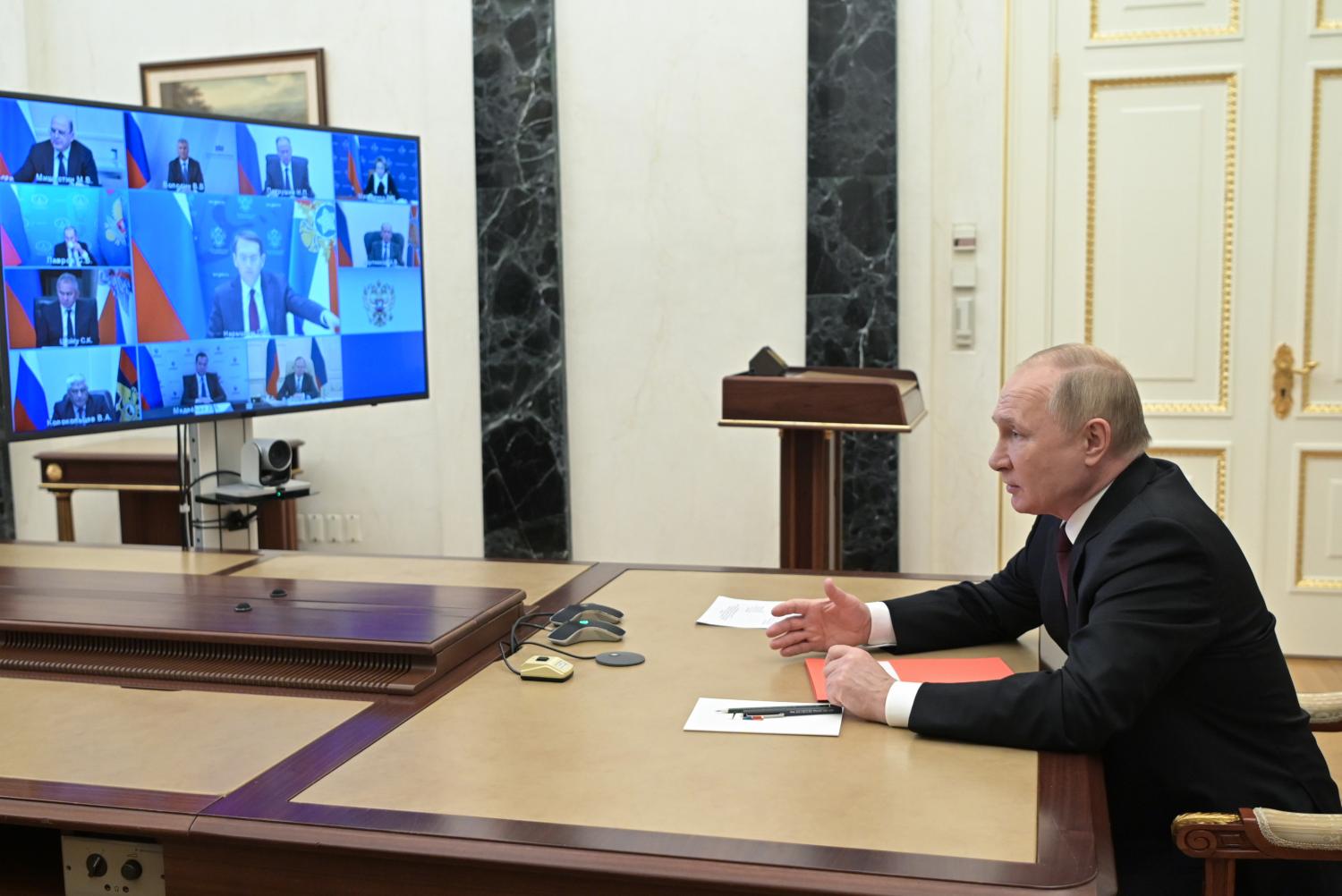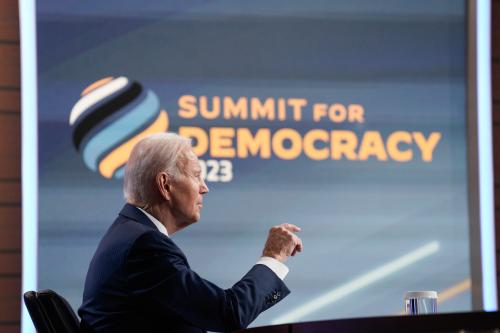This tracker monitors targeted financial sanctions related to the Russian invasion of Ukraine. The first edition of the tracker was published on Monday, Mar. 14, 2022. The current edition of the tracker was published Wednesday, July 19, 2023. It now covers sanctions from the onset of the Russian invasion of Crimea in 2014 through June 26, 2023, for selected countries. Given the rapidly evolving situation, this spreadsheet will be periodically updated. Please send any questions and comments regarding the tracker to [email protected].
The world’s democracies are employing financial and economic countermeasures in the fight against Russia’s invasion of Ukraine on Feb. 24. The extent of these sanctions is staggering. To analyze the scope and potential impact of these sanctions, it is essential to systematically monitor and track them—which is why we are launching the Brookings Sanctions Tracker.
Our goal is for this tracker to serve as a timely and user-friendly tool for civil society organizations, policymakers, and others who seek to analyze the current landscape of specific restrictive measures imposed against Russia (both on an individual nation basis and across the international community), generate analysis on trends and gaps, and inform recommendations on how to combat corruption, advance accountability, and defend democracy.
To that end, the tracker is organized in a format that allows users to view a snapshot of current sanctions that governments have designated within a specified timeframe. The downloadable Excel spreadsheet format allows users to view, sort, and analyze sanctions against Russian individuals and entities that have been issued by the United States, European Union, United Kingdom, Australia, Canada, Japan, the Republic of Korea, and other specified nations that have taken major actions. Users can view a list of sanctions by clicking on the tab for a given government. There is also a Global tab with a consolidated list of all the sanctions we track across the jurisdictions.
As a starting point, the first edition of the tracker focuses on targeted sanctions—that is, ones made against specific Russian individuals and entities. It also includes announcements by governments that have not yet released lists of sanctioned individuals but have announced their intention to follow restrictive measures against Russia by the European Union and/or the United States. In addition to the name of the individual or entity being sanctioned, the tracker features other publicly available information such as the authority used by the relevant government to make the designation, a description of who or what is being sanctioned, and a brief rationale the government provided for a given sanction, among other details. This spreadsheet includes a key providing more information.
We recognize that there are many other restrictive measures that go beyond these targeted sanctions. For future editions of the tracker, we may expand the scope of our data collection beyond targeted sanctions to include other types of sanctions and restrictive measures, non-government entities that have imposed restrictions on Russian individuals or entities, and other information that users would find helpful.
Given the volume and frequency of sanction announcements, and the variation in relevant data provided by countries (including the variation in languages), we anticipate a need to refine our data and methodology over time. We will carefully consider suggested additions, corrections, and other feedback. Please send comments on the content and usability of the tracker to [email protected].
Acknowledgments
Special thanks to Zoe Hatsios for project coordination in addition to research support. Thanks to Joshua Bernard-Pearl, Matthew Eitel, Austin Fabritius, Max Knight, Ivana Lefebvre d’Argencé, Sasha Matsuki, Mansi Patel, Caroline Pitman, Ramneek Sanghera, Caleb Seamon, Kai Smith, Kathryn Spurrier, and John Stukenberg. A variety of others also contributed to the research, including Megan Smith, Gita Howard, Kelsey Peden, Dami Ojuri, Layla Abi-Falah, and Alexis Eisa. We’re grateful for their efforts.









